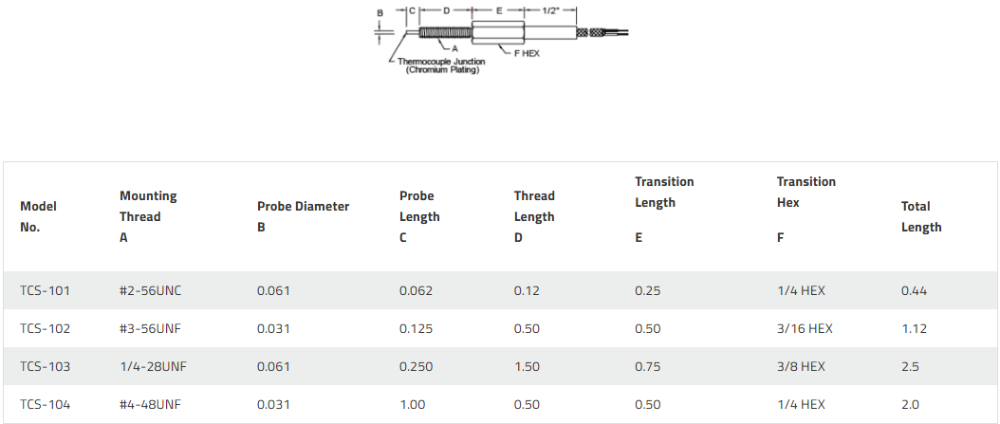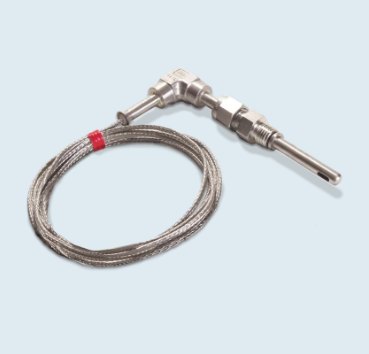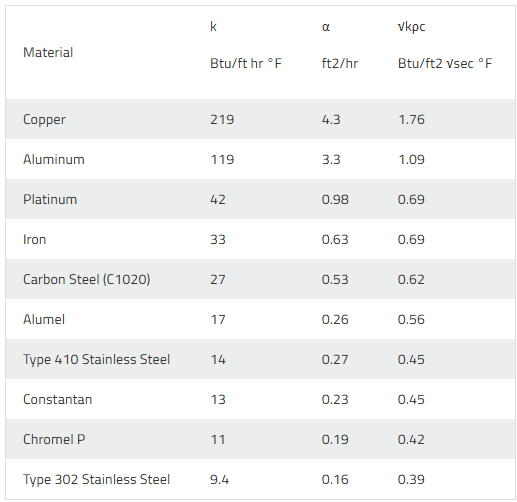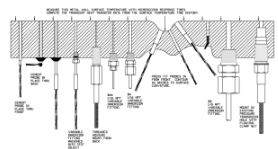Features
-
Microsecond Response to Metal Wall
-
Surface Temperature Changes
-
Allows Very Short Duration Testing
-
Available Probe Diameters from .015 Inch
-
Precise Location of Thermocouple
-
Rugged Renewable Junctions
-
Withstand High Pressure and Heat Flux
Applications
-
Wind Tunnel Model Surface Temperature
-
And Heat Flux Measurement
-
Inside Surface Temperatures of engine cylinders, air compressors, gun barrels, bearings
-
Die Casting Dies
-
Blast Effects on Structures
-
Laser Target Surface Temperatures
Standard Configurations
Over the years, four standard configurations have been found to cover a wide variety of applications. The dimensions are shown below:




















